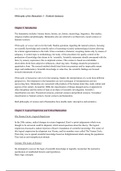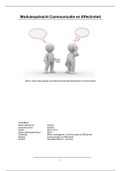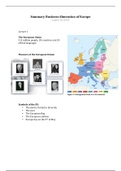Samenvatting
Summary of the textbook "History and Philosophy of the Humanities: An Introduction"
- Instelling
- Universiteit Van Amsterdam (UvA)
This summary comprises all the compulsory readings and study material for the final exam of the updated version of the textbook "History and philosophy of the humanities" (Chapters 1-12, with exception of chapters or points which are not compulsory.) The information of my summary is very sinthesiz...
[Meer zien]












